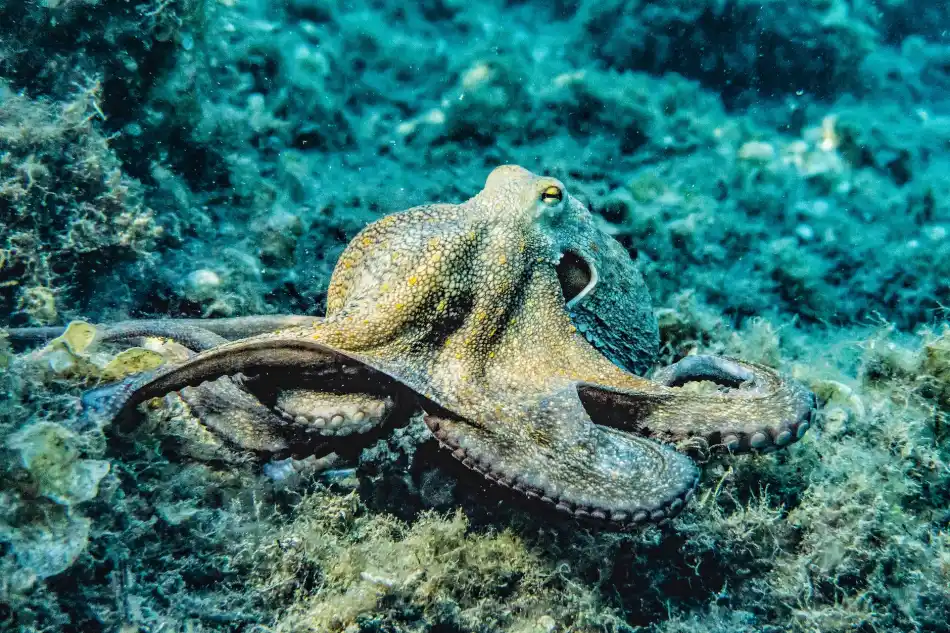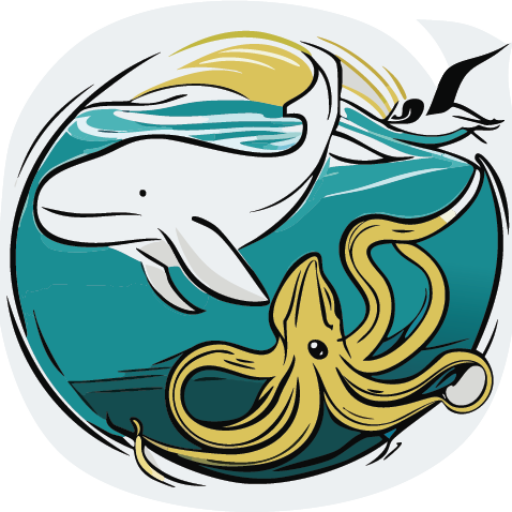
The octopus, an animal with nine brains, three hearts and the ability to change colour, texture and shape at will, is an intelligent and fascinating creature. Around the world, animal lovers flock to aquariums and oceans the world over to learn more about these beautiful and somewhat alien creatures.
Along with being interesting, octopuses are also delicious. Many coastal communities, such as Spain, South Korea, Japan, Greece and many others, eat octopus as an important source of protein, and as a delicacy. Octopuses can be cut up before serving, such as in the dish Pulpo a la gallega from Spain, or eaten whole, in Hobotnica ispod peke, from Croatia. No matter how they are prepared, octopuses are yummy, and recently, with a growing world population and an increase of adventurous eaters, the demand for octopus meat has grown. So far, octopuses have been caught using pots, traps, spears and other methods, and all of the octopus meat consumed has been wild.
However, a company called Nueva Pescanova has made a proposal to open the world’s first octopus farm in 2023, which will be situated somewhere in the Canary Islands. The Canary Islands’ General Directorate of Fishing has yet to approve the project.
The company proposed an octopus farm as a way to help with overfishing and produce more octopus meat. While the company claims that their octopus farming techniques are ethical, any octopus lover would quickly see that their proposed practices are majorly flawed. According to BBC, Nueva Pescanova plans to house octopuses in communal tanks with a ratio of 10-15 octopuses per cubic metre of water, feed the skilled hunters dead fish, and train bright lights on these nocturnal creatures for most of the day. One would wonder whether the company knows anything about octopuses.
Their proposed method of killing octopuses is the worst of all. The company plans to kill the octopuses using a technique called the “ice slurry”, which involves placing the octopus in cold water (typically -3℃) and waiting for the octopus to die slowly. This method has been used for other fish before, but humane societies are moving towards banning the practice, which is often considered inhumane, even for fish, which are much less intelligent than octopuses.
The company says that there will be a 10-15% mortality rate for the octopuses before they are killed for their meat. In comparison, an acceptable mortality rate for a dairy farm would be 5%, ideally 3%, according to Dairyherd.com, which makes the current farmed octopus mortality rate wholly unacceptable. Moreover, the Animal Welfare (Sentience) Act, passed in the UK in 2022, states that octopuses are considered sentient, just like many other animals, such as cats, dogs, birds etc. Because of their intelligence, octopuses should be treated with the same care and ethical considerations as other farmed animals. Some wish to ban octopus farming before it even begins, because clearly we don’t yet know enough about octopuses, or have the resources to learn more about these complex creatures.
Which would you prefer to eat: An octopus born and raised in the wild, or an octopus who spent its life in a cramped, barren tank, its only purpose in life to eventually be eaten by you?
Sources:
https://www.bbc.com/news/science-environment-64814781
https://www.tasteatlas.com/most-popular-octopus-dishes-in-the-world
https://www.dairyherd.com/news/dairy-production/what-should-mortality-rates-be-dairy-farm
